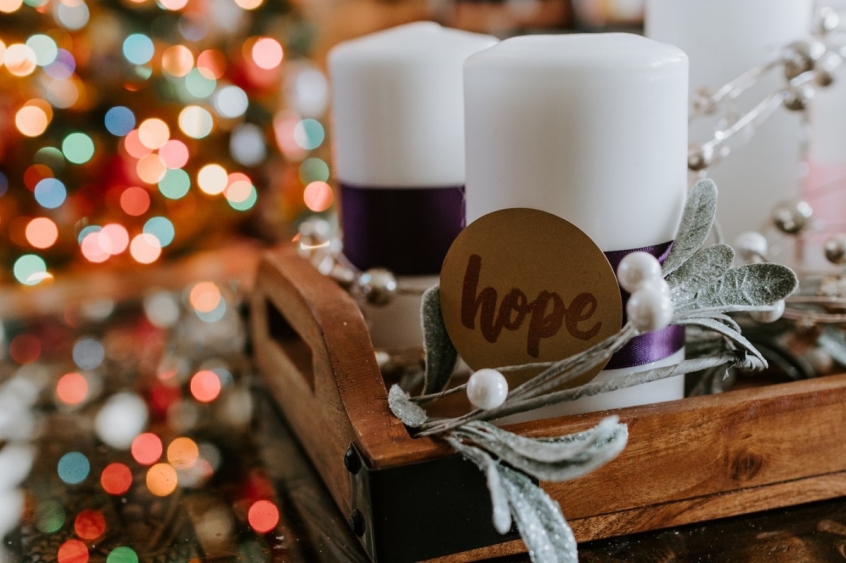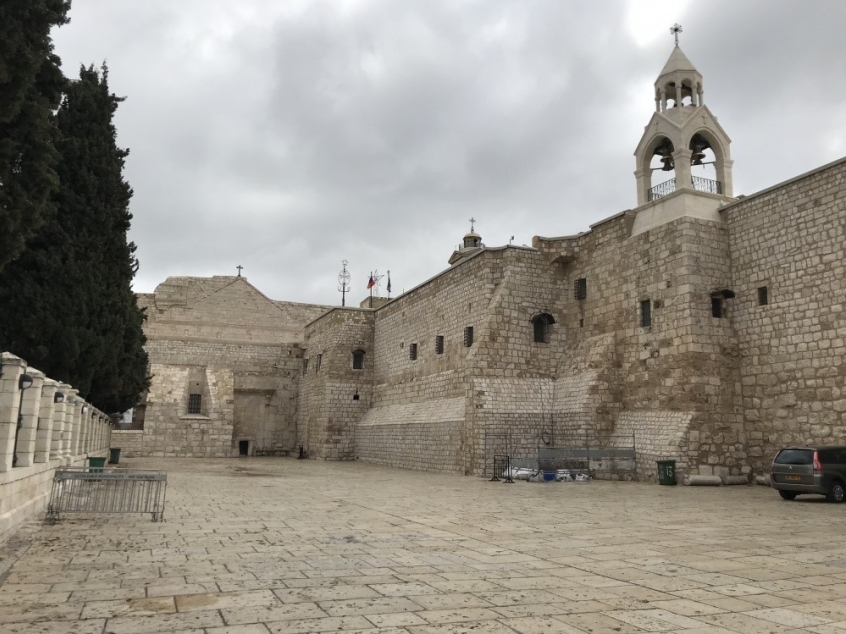
Christmas Day this year is being celebrated by people the world over under the shadow of Covid-19.
For many around the world, including millions across the UK and parts of Europe, this includes lockdowns and tough restrictions that have all but cancelled most of the traditional public Christmas celebrations.
At his first online Midnight Mass, the Archbishop of Canterbury, the Most Rev Justin Welby, reassured people that God "knows what we suffer".
"This baby, fully human, is also fully God," he said.
"We can ignore him or make space for him, and when we do that, like the shepherds, we find this baby fills our lives to past overflowing with the love of God.
"We find a presence invading our lives that is made of love. We may be in a hospital ward, we may be missing someone in a hospital ward, missing someone who seems to have gone. We may be frightened and anxious, isolated, lonely. God will fill our lives with love.
"He offers that and gives us choice, He knows what we suffer because he did too, he knows us better than we know ourselves."
At Midnight Mass at Westminster Cathedral, Catholic leader Cardinal Vincent Nichols said many "comfortable assumptions" were "being shaken" in the "darkness of the pandemic".
"Here we are, celebrating Christmas, yet deprived of the greetings, hugs, kisses and handshakes that normally fill this day," he said.
But he went on to speak movingly about the acts of "selfless service" by so many people that had "penetrated the darkness" of the last nine months.
"Have we not seen these months of difficulty marked by countless acts of random kindness, quiet heroism, selfless service, remarkable community efforts, all directed towards those most in need?" he said.
Delivering a Christmas Eve homily, Pope Francis said that in Jesus, people could always find "the strength needed to face every trial" and that God could "work wonders through our poverty".
But he also challenged people to love others in spite of what they themselves may lack.
"God came among us in poverty and need, to tell us that in serving the poor, we will show our love for Him," he said.
In Bethlehem, normally abuzz with tourists and pilgrims at this time of year, what few festive events there are have been attended by locals only and, even then, in limited numbers.
Luis Michel, souvenir shop owner, told CNN he was asking for all believers "to go and pray with the faith that God will give us a miracle and finish the virus and everything will turn back as before".
Leading this year's reduced celebrations on Christmas Eve was the newly-appointed Latin Patriarch of Jerusalem, Pierbattista Pizzaballa, who himself contracted coronavirus and recovered.

In his homily, he spoke of the darkness that the pandemic has brought to many people's lives but also the hope that remains in Jesus.
"Everyone feels darkened, tired, exhausted, oppressed for too long under the heavy burden of this pandemic that besieges our lives, paralyzing relationships, putting politics, economics, culture, and society to a severe test. Ancient structural weaknesses have amplified, and no clear and shared solutions seem to be on the horizon," he said.
"Even those who govern us are groping in the dark. Christian communities, for their part, struggle to maintain established rhythms over time and are unable to imagine the new that will come.
"Many in recent months, like I and better, have tried to make a diagnosis, to imagine future scenarios, to paint the current situation in more or less dark colors.
"However, in my first Christmas Mass as a Patriarch, I do not want to give voice to those who know well how to describe the night. I must, and I want, to give voice to the prophecy, to echo the Gospel, to communicate the grace of this hour to you.
"Yes, brothers and sisters, for what we are experiencing here, now, is an hour of grace! It is not a pious delusion, nor a romantic escape into a reassuring religion or cheap consolation.
"'A child was born for us; a Son is given to us': this is the certainty of Christians."
In a joint Christmas message, the heads of Jerusalem's major Churches, which include the Catholic, Greek Orthodox and Lutheran donominations, expressed their solidarity with all people worldwide who have been affected by the pandemic and "its multi-layered implications", but "particularly the people of Bethlehem and the surrounding area".
"God's presence with us in all circumstances is a source of encouragement and sustenance, especially at these exceptional times of Covid-19, economic crisis, injustices, and increasing violence against the vulnerable and weak," they said.
"We pray that the forthcoming vaccination against Covid-19 may bring an end to the pandemic and a return to normalcy."
The Patriarch of Jerusalem, Theophilus III, said in his Christmas message that the Church must be "a place of prayer for the healing of the Covid-19 patients, and a provider of support to those affected by the protective measures against this plague".
In the UK, where a new and more contagious strain of coronavirus has driven up infection rates, some churches have decided to close their doors for public worship despite being permitted to remain open by the Government.
One such church was St Mary's, Ilford, which will be livestreaming services only over Christmas. Vicar Fr Gareth Jones said the decision to close the church was "agonising" but the "responsible thing to do" in light of spiralling Covid numbers in the area.
"Closing the church has been an agonising decision; many of us will struggle to remember a Christmas without being in our church building," he said in a pastoral letter to parishioners.
"I share this anguish and sense of loss and disappointment. But I do believe this is the responsible and loving thing to do, so that we protect each other and our community and take a lead in helping to reduce the infection rate and overcome this virus.
"In doing so, we might dare to hope and pray that 2021 may return to us the years the locusts have taken."













